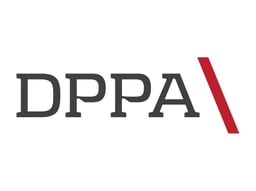GESSEL builds one of the strongest competition law practices on the market. Instytut Prawa Konkurencji team joins the firm
GESSEL has significantly strengthened its Competition and consumer law team, further developing one of the most experienced regulatory practices on the Polish market.
Three highly regarded lawyers – Dr Monika Bychowska, Maria Mrówka, and Elżbieta Witkowska-Grochowalska – have just joined the team led by Partner Bernadeta Kasztelan-Świetlik. The new team members bring many years of experience gained both at the Office of Competition and Consumer Protection (UOKiK) and at Instytut Prawa Konkurencji, a boutique outfit cofounded by them after leaving the former.
Onboarding of these three lawyers ensures the continuation of services previously provided to Instytut Prawa Konkurencji clients within GESSEL’s structures. This guarantees uninterrupted legal support and access to a team that has been setting advisory standards in competition and consumer law for years.
The new seven-member GESSEL team combines unique regulatory experience with transactional and litigation expertise. The firm’s lawyers support clients not only in antitrust proceedings and merger control cases, but also in consumer law compliance audits, day-to-day regulatory advice, and during dawn raids conducted by UOKiK. Against the backdrop of increasing proactiveness and hard-line enforcement on the part of the competition authorities, such support has become a key element of effective legal risk management.
“The inbound transfer of three highly experienced and market-recognised experts means that the team led by Bernadeta Kasztelan-Świetlik, formerly a long-standing Vice President of UOKiK, has become one of the strongest competition and consumer law practices on the Polish market. This move also strengthens our transactional support, demand for which has been growing significantly. This is reflected, for example, in the 2025 Mergermarket ranking, where we placed third in terms of the number of transactions advised on,” said Marcin Macieszczak, Managing Partner at GESSEL.
Dr Monika Bychowska specializes in Polish and EU competition law and consumer law. Her experience covers cases involving competition-inhibiting agreements, abuse of dominant market position, merger control, and interactions between business enterprises and competition authorities. She has worked on highly complex matters, including systemic and cross-border cases, in both regulated and private markets. Between 1998 and 2009, she was associated with the Polish Office of Competition and Consumer Protection (UOKiK), including serving as Director of the Competition Protection Department from 2005 to 2009.
Maria Mrówka specializes in competition and consumer protection, including proceedings concerning practices infringing collective consumer interests, anticompetitive agreements, and abuse of dominant market position. She has extensive experience in complex administrative and court proceedings, including cases before the Court of Competition and Consumer Protection, courts of appeal, and the Supreme Court. She has also worked on merger control cases. Her clients have included entities from both the private and public sectors. From 1996 to 2009, she worked at the Office of Competition and Consumer Protection. In 1999, she was appointed Deputy Director and, in 2005, Director of the Warsaw branch of the Office of Competition and Consumer Protection.
Elżbieta Witkowska-Grochowalska specializes in competition and consumer law. She has extensive experience in assessment of anticompetitive practices and merger control. She has been involved in complex administrative and court proceedings, including cases before the Court of Competition and Consumer Protection, courts of appeal, and the Supreme Court. Between 1998 and 2009, she worked at the Polish Office of Competition and Consumer Protection, serving as Head of the Communications and Media Division and, as of 2004, as Deputy Director of the Competition Protection Department.
“We are developing our practice in a way that directly addresses our clients’ real challenges. The intensity of antitrust and consumer enforcement requires experience which cannot build on theory only. That is why combining the competencies of the GESSEL team with the achievements of Instytut Prawa Konkurencji is a natural step. Equally important is the fact that we are welcoming fantastic people who bring energy, trust, and a shared commitment to quality,” said Bernadeta Kasztelan-Świetlik, Partner at GESSEL and Head of the Competition and consumer law practice.
The latest strengthening forms part of GESSEL’s long-term growth strategy. For over 33 years, the firm has continuously provided legal services on the Polish market. Its team of more than 100 experts currently works across more than 20 practice areas, delivering comprehensive advice on the most complex legal and business projects.
Contact:
Adriana Niecko
Director of Social Media and Events
+48 22 318 6901
[email protected]
About GESSEL:
For over 30 years, GESSEL law firm has been a trusted partner for the business community both in Poland and internationally, offering a client-centric approach which adapts legal services to unique needs. By supporting clients at every stage of their company’s journey, from initial investments and day-to-day operations, through to strategic growth, tax structuring, and dispute resolution, GESSEL has earned a reputation as a comprehensive legal advisor committed to delivering efficiency and success.
Drawing on extensive experience across various sectors – including finance, construction, real estate, food and beverage, transportation, retail, pharmaceuticals, energy, and IT – the firm is well-equipped to address the most demanding business matters, but also high-stakes litigation and complex arbitration proceedings. This versatility is reflected in GESSEL’s consistent presence at the top of both national and international legal rankings, underscoring the enduring trust its clients place in its expertise.
A nearly 100-member team is renowned for delivering practical legal solutions that safeguard client interests, while also driving their projects forward with speed and precision. By combining multidisciplinary knowledge with a deep understanding of the business world, GESSEL ensures that every client benefits from comprehensive advice that supports their vision for success.
Detailed information, including achievements and ranking positions, is available at www.gessel.pl.
GESSEL Attorneys at Law - February 3 2026














































